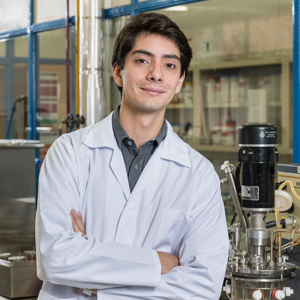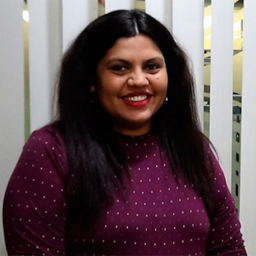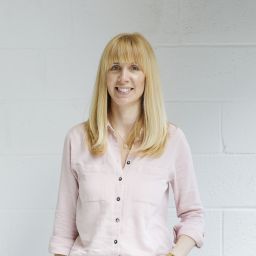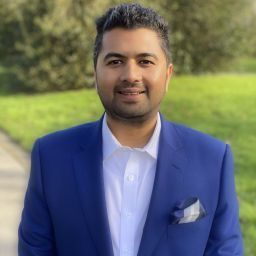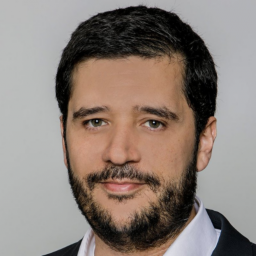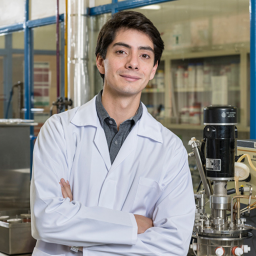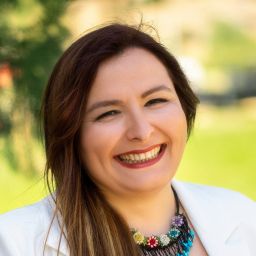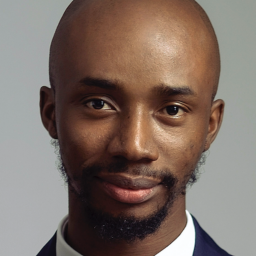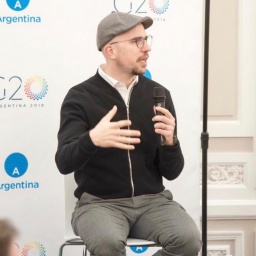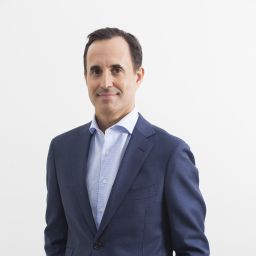Meaningful Business (MB:) Please tell us a bit about your journey into sustainability.
David Drew (DD:) I have always been passionate about the environment, which I guess growing up in Africa isn’t that unusual. From strong influencers within my family and at junior school I developed a love for biology, indigenous plants and bird watching together with a passion for the African bush. At university I was considering a masters in bio-chemical engineering as a way to combine my passion with my vocation, but a good job offer at Unilever pulled me into the working world. Although I never lost my passion for the environment, it took a bucket list trip to Yosemite and Sequoia National in April 2019 to remind me of what was missing and a month later I’d resigned from my role at a global plastic packaging giant ALPLA.
I guess my current sustainability journey started a bit earlier when I was elected to serve on the board of PETCO, a voluntary Producer Responsibility Organisation, in 2015, but it was during my transition period from ALPLA when I volunteered to use the time I had to assist PETCO with some strategic and operational challenges, that my current journey really began in earnest. My work with PETCO led to my currently role at Coca-Cola and changes in both the global environment and in government policy within Africa meant that I’ve arrived at an extremely interesting and challenging time.
MB: What SDG-focused initiatives are you leading at Coca-Cola?
DD: Whilst Coke has a number of programmes that are aligned to other SDGs, in my role I am primarily responsible for work under our World Without Waste (WWW), RAIN water replenishment initiatives as well as our carbon footprint reduction programme. The WWW initiative primarily focuses on collection and recycling of our packaging which is designed to reduce the uncontrolled accumulation of material in both the general environment and our rivers and oceans. As such it would be aligned both to SDG 14 (Life Below Water) and 15 (Life on Land). Our water use reduction programmes, water restoration and in Africa our “RAIN” initiative address a number of SDGs but probably best fit under SDG 6 (Clean Water and Sanitation) and our carbon footprint reduction commitment is clearly primarily aligned with SDG 13 (Climate Action).
MB: What are the main problems you are trying to solve?
DD: The greatest challenge for most FMCG companies is ensuring that the packaging they use can be collected, recycled and ultimately re-used in either circular applications, or sustainably consumed by other uses. At Coke we are fortunate that the majority of our packaging formats are already highly recycled and in many countries waste management services or informal collection enables high levels of collection, but there are still some gaps that we need to solve. More broadly however there are huge challenges in the space of waste management and recycling, particularly with some plastics. In the developing world the challenge is even greater and this is where I believe we can make the greatest impact by bringing together industry, governments and civil society to develop collaborative systems to solve the challenge of managing collection & recycling in developing economies.
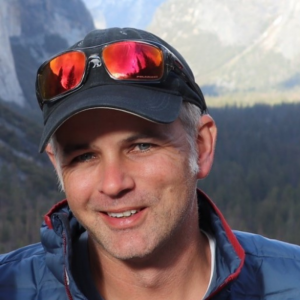 David Drew, Sustainability Director, Africa, Coca-Cola
David Drew, Sustainability Director, Africa, Coca-Cola
MB: What is your biggest challenge right now?
DD: I think THE challenge we need to get our heads around is an economic challenge. Although there is clearly value to be extracted from waste and opportunity in the circular economy, we need to understand that in many developing economies, proper waste management is costly. Unfortunately, the solutions that are employed successfully in benchmark environments within Europe for example, are simply not affordable in most of Africa. Although value is recovered from recycling, most people forget that the cost of multi-bin curb-side collection is ultimately borne by the consumer either in taxes, municipal rates or built into the cost of the products they buy through Extended Producer Responsibility (EPR) fees or container deposit costs. This means that we need to find innovative solutions that are going to be more efficient and ultimately achieve levels of collection and recycling seen in richer countries at a fraction of their cost.
In this space, informal collection is going to be a critical enabler. Informal collection already collects the majority of recyclables across the developing world, but because its based on recovering materials with value, it generally doesn’t solve the no value / low value challenge, and these are the materials that we tend to see most of in the environment and in our oceans. We have to address this on two fronts. Firstly, we need to reduce the amount of material that has no value after initial use, either by creating demand for it through innovation or by changing our material choices to eliminate those materials that can’t be re-used. Secondly, we need to work creatively with the informal collection sector to enable more efficient collection of recyclables and reduce unnecessary duplication of services. In this space enabling curb-side collection of recyclables via informal collectors is the key, not only in improving the quantity and quality of recyclables collected but also to improve the quality of life of informal collectors and ultimately eliminate landfill mining.
MB: What more can corporates do to help achieve the sdgs?
DD: I think that in the developing world, the role of corporates is perhaps most critical as they potentially will need to lead rather than respond to policy. I think that here we need to see corporates truly commit to making their products in more responsible ways and supporting the circular economy with more than just lip service. Bill Gates recently said “companies are going to have to make a distinction between trying to look good and actually having impact,” and I think this sums up the kind of changes that are needed. Having been involved in voluntary initiatives like PETCO both during my time at Coke and beforehand, I’ve seen the impact that commercial industry contributions can make if they are substantial and well managed. I’ve also seen how many corporates avoid paying towards things like EPR unless they absolutely have to. Concepts like EPR are going to be critical to solving the challenges we face and in particular enabling a more circular economy. As such I’d say that producers of products, and by that I mean those that have the power to choose or influence the design of products and not necessarily those that physically make them, need to understand that they have a critical role in both enabling and financing the circular economy, or waste management services that will ultimately clean up what they put into the market.
MB: What is your advice to other leaders who want to combine profit and purpose?
DD: I think that it’s critical that sustainability must be sustainable. It sounds trite but it’s genuinely so important in this space. We have so many people with a passion to make a difference and many wonderful initiatives that do just that. The challenge is that to solve the kinds of problems we face as humanity, we need solutions that are affordable and will work at scale. This is where those that want to combine profit and purpose can really make a difference. We won’t solve this with initiatives that look good, make a great social media story, but ultimately are a flea on the proverbial camel’s back. We need solutions on an industrial scale and this sometimes means being very selective about what we support. I would encourage those looking to make an impact, to apply the kinds of rigour that we apply to other elements of business to all Environmental, Social, Governance (ESG) initiatives.
________
Quickfire Questions
MB – What’s the best piece of advice you ever received?
DD – Complex problems have convenient, easy to believe, wrong answers!
MB – Who inspires you?
DD – Interesting, talented people willing to share their knowledge and passion.
MB – How do you define success?
DD – Balance, along the lines of the Japanese concept of Ikigai.
MB – What is something you wish you were better at?
DD – Drumming.
MB – What is the one book everyone should read?
DD – Sapiens, by Yuval Harari.
MB – What do you do to relax?
DD – Ride my bike.
________
Discover the other MB100 leaders recognised for their work combining profit and purpose to help achieve the United Nations Sustainable Development Goals in 2020, here.




